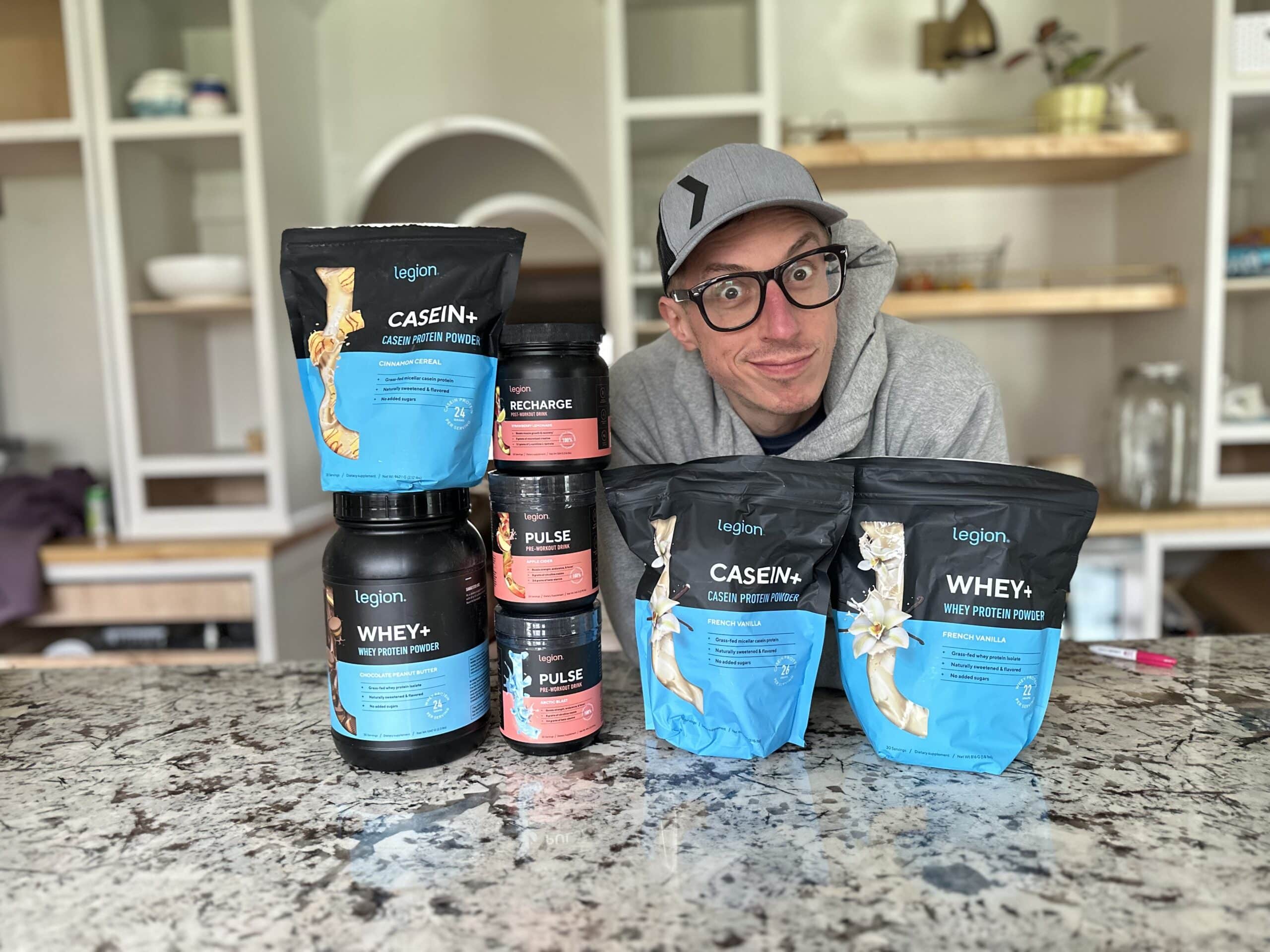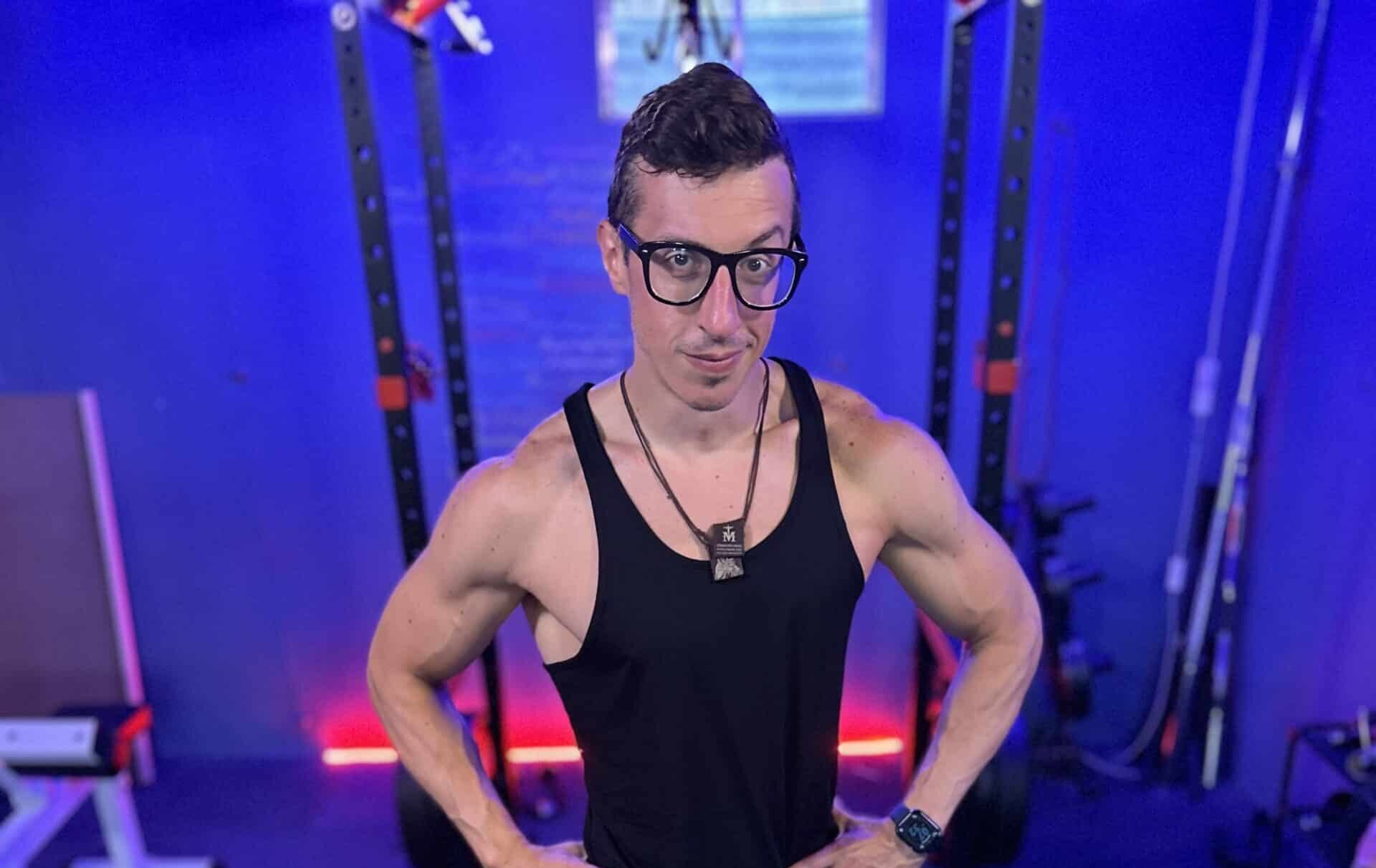
How much protein should you eat? – Fitness TLDR
You may be surprised to learn how much protein you should be eating every day. Until you start thinking about optimizing your health for longevity or sport, chances are that you haven’t asked yourself this question.
In this TLDR; series I want to talk about popular fitness topics, but with a twist. The twist? You get the ‘Too Long Didn’t Read;’ information at the top. That’s right, we’re giving you the info right away without making you go through clickbait ads. Then if you want to dive in and learn more, you can read further.
TLDR;
- You should eat about .8g of protein per lb of weight per day (or 1.76g of protein per kg of weight)
- Ex: 185lb man should eat around 148g of protein a day
The Explanation
What’s the Right Amount
Protein is a macronutrient that is fundamental for various bodily functions, including tissue repair, enzyme production, and immune system support. According to the Recommended Dietary Allowance (RDA) set by the Institute of Medicine, the average adult should consume about 0.8 grams of protein per kilogram of body weight per day (or about .36g per lb for you imperials). For a sedentary individual, this is often sufficient to meet basic nutritional needs.
Most research, however, points to an optimal intake of 0.7-1.0 g/lb or between 10 percent and 35 percent of daily calories.1
Thinking 1g per lb of bodyweight is easy but you’ll likely be great with just .8g per lb. Here are a collection of studies that bear this out.
How can you eat enough protein?
Timing Matters
Protein timing is also beneficial for fitness enthusiasts. Studies like the one published in the American Journal of Clinical Nutrition have shown that consuming protein within a window of two hours post-exercise enhances muscle protein synthesis and recovery. This post-workout “anabolic window” suggests that timing protein intake strategically can maximize its benefits for muscle growth and repair.
It’s also better to space your intake out throughout the day.
Quality Matters Too
It’s not just about the quantity of protein; the quality of the protein sources matters too. High-quality protein sources are rich in essential amino acids, which are the building blocks of muscle protein. Sources like lean meats, fish, eggs, and dairy products provide these essential amino acids in abundance. Plant-based sources like legumes, nuts, and tofu can also contribute to protein intake, but may require more careful planning to ensure a complete amino acid profile.
So how do you eat enough?
Ok, let’s go through this toghether. So you’re 185lbs which means you’re going to shoot for 148g of protein a day (185 *.8). You eat three meals and have two snacks. If we want to break this up evenly, then you’ll need to have about 30g of protein per meal. Or if you have a bit more food for your meals, let’s say 3 meals at 40g a piece, then two snacks at 15g a piece.
The Meals
Here are example meals to get the protein with a variety of foods. I’m not calculating all the macros, i’m just adding up the protein.
Breakfast – 43g protein
2 eggs, 92g egg whites, 112g sliced chicken breast
Lunch – 41g protein
6oz chicken breast sliced on top of lettuce with an assortment of vegetables
Dinner – 36g protein
Beef spaghetti meat sauce (360g), 1 serving spaghetti noodles, steamed vegetables 200g
Snack 1 – 20g protein
Protein bar (Legion is great 😉 #sponsored, or the Kirkland brand is awesome too
Snack 2 – 10g protein
Small scoop of protein powder in water
Total – 150g protein
As you can tell, it takes some work. But the key is to know what you need, and have the tools to get there. I always like to have on hand these items so i can increase or reduce my protein intake as necessary:
- Greek Yogurt – between 12g and 17g of protein per serving, awesome with sugar free syrup
- Chicken breast lunch meat – can be added to anything
- Cooked/grilled chicken breast – added to anything
- Whey protein – added to anything you bake, muffins, pancakes, whatever, but you can also just drink it straight to get over the limit. Have two scoops if you need to hit 40g of protein in one go.
As you can tell, this takes some work. Once you’ve set yourself up for success, however, you should be able to get to a point where you don’t have to think too hard about it.
1. ISSA Certified Personal Trainer 10th Edition. Page 524




